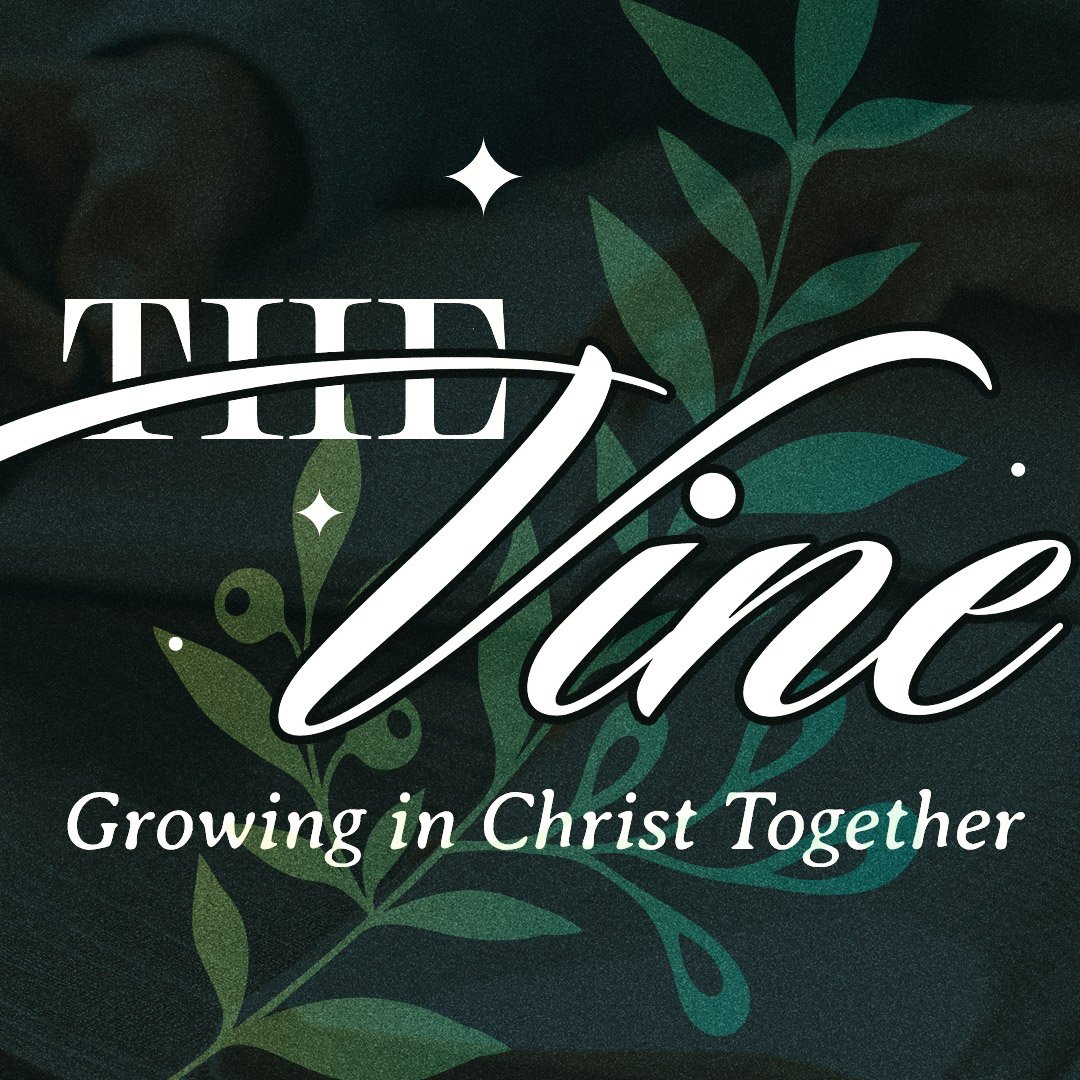The Vine: September 23, 2024
“Abide in me as I abide in you. Just as the branch cannot bear fruit by itself unless it abides in the vine, neither can you unless you abide in me. I am the Vine, you are the branches. Those who abide in me and I in them bear much fruit, because apart from me you can do nothing”
This is a weekly reflection on the previous week’s sermon text. Each week there will be a devotional related to the scripture for the week, along with questions for reflection/discussion, as well as prayer. Feel free to make this a part of your individual spiritual growth throughout the week or utilize in small group settings (growth groups, Sunday school, etc.)
“Someone in the crowd said to him, “Teacher, tell my brother to divide the inheritance with me.” But he said to him, “Man, who made me a judge or arbitrator over you?” And he said to them, “Take care, and be on your guard against all covetousness, for one’s life does not consist in the abundance of his possessions.” And he told them a parable, saying, “The land of a rich man produced plentifully, and he thought to himself, ‘What shall I do, for I have nowhere to store my crops?’ And he said, ‘I will do this: I will tear down my barns and build larger ones, and there I will store all my grain and my goods. And I will say to my soul, “Soul, you have ample goods laid up for many years; relax, eat, drink, be merry.”’ But God said to him, ‘Fool! This night your soul is required of you, and the things you have prepared, whose will they be?’ So is the one who lays up treasure for himself and is not rich toward God.”
According to Jewish custom, rabbis had the authority to settle legal disputes over property division among heirs. This is why the man in today's passage came to Jesus seeking his share of his brother's inheritance. What stands out in this passage is that Jesus used the encounter to teach something more powerful than judging between the two brothers.
Upon first hearing this story, you could easily argue that the rich man is an innovative and savvy businessman. He has a thriving farming business, with his land producing so much that he lacks sufficient storage space in his barns. He plans to demolish his current barns and construct larger ones to store all his grain and goods. This way, he would have more than enough savings for the future and be all set to enjoy retirement.
Isn't this what we are encouraged to strive for? Isn't it wise and responsible to save for the future? The wealthy farmer would probably be an excellent financial advisor. He seems to have things figured out. He has worked hard and saved wisely. Now, he can sit back, relax, and enjoy the fruits of his labor.
Well, not till Jesus calls him a fool. The rich farmer is a fool not because he is wealthy or because he saves for the future but because he appears to live only for himself. When the rich man talks in this parable, he talks only to himself, and the only person he refers to is himself: “What should I do, for I have no place to store my crops?” Within the parable, he used “I “ more than five times. He has made life all about him.
The affluent landowner has gathered a plentiful harvest, yet he displays no appreciation towards God or the laborers who helped sow and gather the abundant crop. Despite having an abundance of grain and possessions in storage, he fails to contemplate sharing with others or meeting his obligations to God.
Like many parables, we don’t know the ending. The story does not end with a happy ending like a Hallmark movie. Did the rich man return to his brother, reconcile, and then use his wealth to help the community? Did the man go back angry at what Jesus said but, after thinking about it, change his ways? Did the man hear what Jesus had to say but finally find a rabbi who would do what he wanted all along?
PRAYER
Lord, we confess our tendency to place our trust in material things, seeking security and fulfillment in the accumulation of wealth. Help us to remember that true riches are found in Your love and grace. May we be generous with our time, talents, and resources, recognizing that we are stewards of Your gifts.
We pray for the strength to resist the temptation to hoard and, instead, to share our abundance with those in need. May we find joy in giving, knowing that it is a reflection of Your love for us.
Thank You, Lord, for Your constant guidance and loving care. In Your name, we pray. Amen.
Questions for Reflection:
1What is the primary theme that Jesus emphasizes in his response to the rich man's request for a share of his brother's inheritance?
How does Jesus' teaching differ from the man's expectations?
Why does Jesus label the rich man as a "fool" despite his apparent success? What does this label reveal about the underlying issue with the man's approach to life and wealth?
What does the rich man's failure to acknowledge God or the contributions of others suggest about the limitations of material wealth?
What is the significance of the open-ended ending in this parable?
PREVIOUS WEEKS
To view all previous devotions go to https://fumc-rr.org/the-vine



